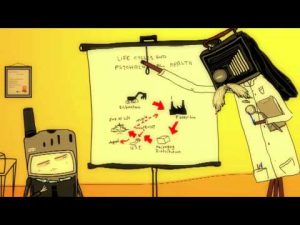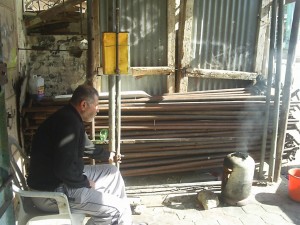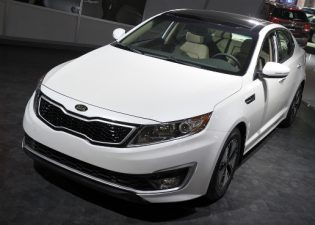 Every day, 35 people are killed in the Gulf as a result of poor driving. Mohd Shahnawaz has launched a new campaign to change the attitude behind the Gulf’s reckless drivers.
Every day, 35 people are killed in the Gulf as a result of poor driving. Mohd Shahnawaz has launched a new campaign to change the attitude behind the Gulf’s reckless drivers.
This is the second in a two-part series about the Suraya Foundation. In the first (which you can read here) we described how Mr. Shahnawaz started the Suraya Foundation in the United Arab Emirates after the death of his sister in an undisputed and possibly reckless driving incident.
In this second part, Mr. Shahnawaz describes his methodology for changing the cultural attitudes that wreck havoc on the roads.
In the Arab world, though particularly in the Gulf region, reckless driving accounts for a devastating string of traffic accidents and attendant fatalities. We reported that Iran has the highest rate of traffic fatalities, though Saudi Arabia also has a very serious traffic problem. Mr. Shahnawaz believes that a campaign that combines both an emotional and logical appeal is the most effective way to sway the public.
Emotional logic
TV advertisements by commercial companies increase the desirability of their product by tracking the performance of the campaign via sales and surveys. Similarly, road safety advertisements or public service announcements have to compel the listeners emotionally in order to drive them to action.
Most of the previous campaigns did not work because they were too logical: “Many people die due to accidents and reckless driving, please drive safely & put on seat belts. A message from government of ….”
Compare this our proposed advertisement where a person is talking to his wife and children on his cell phone while driving, hurrying to his office, and then suddenly gets into an accident (crashing sound and ambulance sirens); as he is dying, he wonders who is going to take care of his children and whether he is going to make out of this danger. Too late, he regrets his driving habits and then passes away (heart beat fades out). After than an announcer says “35 people die every day in Gulf due to reckless driving. Are you reckless?”
We believe this latter approach first grabs the listener emotionally, and then logically compels them to action by describing the gravity of the problem.
To compare logical mind and emotional mind, the best analogy was provided by Jonathan Haidt in his famous book “The Happiness Hypothesis.” He compares logical mind to the Rider and emotional mind to the Elephant.
If the message is merely logical and not emotionally compelling the Rider may be able to push the Elephant in his stated direction for some time, but then will be worn out as the emotional side or the Elephant does not want to go in the direction of the Rider.
Similarly, plain emotional messages without logic (a direction or action plan) may die out quickly. Consequently, a complete message which caters to the logical sense and the emotional sense must be made in order to drive listeners to action.
SUCCESS
We studied many successful case studies of various mass campaigns mainly from West. One of the books I am very grateful for is “Made to Stick,” by Dan and Heath Chip, whose SUCCESS principles helped me to design the proposed radio ad. The authors blessed our campaign by sending their autographed new book “Switch: How to Change Things when Change is Hard.” Their SUCCESS principle is the checklist for our proposed campaign.
Here is an example of how media was used to change behaviors of people. In the 1980s the state of Texas faced a huge littering problem, spending at least $25 million per year for clean up, with costs rising 15 percent annually.
Standard messages like “Please don’t litter” didn’t work. Texas authorities hired an advertiser Dan Syrek, who figured out mostly macho-looking males – to whom saying “please” would fall on deaf ears – were the biggest culprits.
Penalizing them by imposing hefty fines did not work as they were already anti-authority. So Dan figured out the best way to convince them was to use people they look up to or people like them. Based on the research, the department of Texas approved a campaign built around the slogan “Don’t mess with Texas.” Here is the video. The campaign is credited with reducing litter on Texas highways 72% between 1986 and 1990.
Similarly there are many road campaigns in the West which have been successful in adopting safe driving methods. There is the !Think campaign in UK which has been very successful in educating people about the dangers of unsafe driving though media.
How can an individual initiate change in their local community?
One of my favorite quotes comes from George Bernard Shaw:
The reasonable man adapts himself to the world: the unreasonable one persists in trying to adapt the world to himself. Therefore all progress depends on the unreasonable man.
There are many examples of change made by individuals like Mahatma Gandhi, Nelson Mandela, and Mother Teresa, people who emotionally compelled the masses to give up the status quo and made them believe in change. They demonstrated that there is another way to improve lives; they took the LEAD to show the way. That is how the names of such LEAD-ers have been immortalized.
Leaders see the problem and make the people aware emotionally and logically about the extent of the problem, and make them aware of the dangers if they don’t take any action, and then LEAD them to change. In today’s world with internet technology and the advancement of social media, thought leaders who are connected to many people or are respected can easily gain momentum and recognition of their campaign.
Are there any laws to protect pedestrians and cyclists on the road? If not, is your foundation working to change that? How?
According to HAAD more than 60% of the road death causalities were pedestrians. Most of the “seat belt campaigns” and government laws do not have laws explicitly protecting pedestrians though in case of death, the driver has to pay compensation irrespective if it was the pedestrian’s mistake. These are post accident measures which seemed to have been unsuccessful in the Gulf (in Oman there has been an increase in compensation fines that did not decrease the number of accidents).
Our campaign is trying to compel the drivers to adopt safe driving methods and prevent reckless driving instead.
What kind of educational policies can be made over the long run to change attitudes and behavior?
We are first planning to spread awareness of the extent of the problem in the Gulf through graphic ads.
We released our first information graphic on Suraya’s birthday, July 19, 2010 (“What is Killing in the Gulf?”). We are also providing and disseminating awareness via social media (Facebook , Twitter, LinkedIn & our Website), newspapers, radios, and by speaking to groups. Our final project is a radio ad: the script is ready to be disseminated to various radio stations.
After approximately six months, we will distribute a survey to determine if people listened to the message, and whether they have adopted save driving methods as a result. Any campaign must be measured to assess its effectiveness, and we believe the survey is one of the best methods to do so.
We are looking for volunteers for researching and collating data, graphic artists to make help make ads, and most importantly radio artists (vocals and studio) who will help develop our advertisements in Arabic, Hindi and English. Interested volunteers may go to the volunteer page and sign up. At the moment we are assessing the costs if radio people decide to charge, and may collect funds for it in future.
We cannot afford to live with the status quo and allow the body bags to accumulate; we have to try to a find solution to stem the road epidemic and prevent reckless drivers from reckless driving.
:: Mr. Mohd Shanawaz
More news from the UAE:




Thanks Mohd. Best of luck to you and please keep us posted.
Thanks guys for commenting. Our campaign aims at long term i.e we try to prevent the collision and one of the ways is to change the mindset of drivers which is hard task and long term campaign. We are realistic in our campaign and we know that the messages has to be consistently applied to have any effect.
We do not have the budget and resources of huge government organizations, we are small but think big and hope somebody or some organization in future will study or campaign and carry the baton.
http://www.protectbypreventing.com
I loved the idea, Don’t mess with Texas! to change the litter problem described above (a problem in the Middle East as well, I might add.)
To the main message of this story:As a former transplant from the West Coast in the US, I can say that the driving I’ve witnessed so far in this part of the world is astoundingly risky and dumb. In the states, if you honk your horn twice a year, you are at risk for suffering road rage. Using that metric, I’d say every driver here is guilty as charged!
Good luck in changing the driving habits across the entire Middle East. A good dose of slow could do us all good.
Ja. I hope he is successful. It’s a sound campaign.
It will be interesting to see how he deals with a case like this
http://www.thenational.ae/apps/pbcs.dll/article?AID=/20100525/NATIONAL/705249816/1010/business
where there was dangerous driving down the main UAE highway
A YouTube video clip of the incident shows a pick-up truck intentionally spinning and skidding across the road, and a 4×4 zig-zagging through traffic while balanced on two wheels. Road safety experts described the drivers’ behaviour as outrageous, shocking and deadly
Major Gen Khamis al Mazeina, the Dubai deputy police chief, said: “We will pursue any person across the country who will carry out such illegal activities and endanger people’s lives.
http://www.carmiddleeast.com/article-1-1786-police_officer_convicted_for_szr_stunt
One of the men caught was a police officer, it was reported.
The officer and a co-defendant, a government worker were found by the Dubai Court of Misdemeanours not guilty of endangering the public and intentionally endangering motorists.
Yes — it’s definitely challenging when the enforcers need to be enforced!